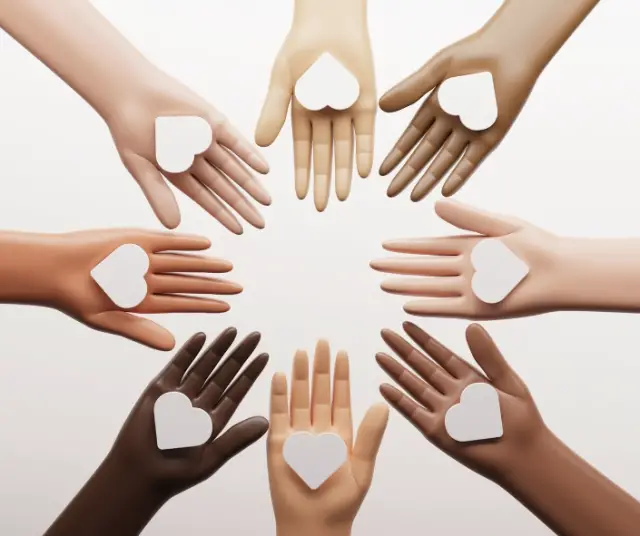The International Day for Tolerance is a date that invites us to reflect on one of the fundamental values of human coexistence: tolerance. Every November 16, since the United Nations General Assembly established this day in 1996, we are reminded of the importance of respecting cultural, religious and social differences, thus promoting a more peaceful and diverse world. Tolerance is not only a desirable ideal, but a fundamental pillar for coexistence in a globalized society.
Tolerance is a concept that has evolved throughout history, acquiring a broader and deeper meaning over time. At its most basic, tolerance refers to the ability to accept and respect other people's opinions, beliefs, and practices, even when they differ from our own. It involves recognizing and valuing diversity in all its forms, whether cultural, religious, ethnic, gender or sexual orientation.
Tolerance does not necessarily mean agreeing with the ideas or behaviors of others, but it does mean respecting their right to have those ideas and behaviors. It is a principle that encourages harmonious coexistence and the peaceful resolution of conflicts in a plural society. Without tolerance, the world would be a much more hostile and conflictive place.
The Importance of Tolerance Today
Today, tolerance is more relevant than ever. We live in an increasingly interconnected world, where cultural and religious differences are intertwined in our daily lives. Globalization and information technologies have brought people from different parts of the world closer together, often leading to a clash of cultures and values. In this context, tolerance becomes an essential element to avoid conflicts and promote peace.
Intolerance, on the other hand, can lead to discrimination, prejudice and violence. We see examples of this around the world, from hate-motivated attacks to systematic discrimination against minority groups. Intolerance not only harms affected individuals and communities, but also undermines the social cohesion and stability of nations.
Tolerance is not only an intrinsic value, but also a requirement for the promotion of other human rights, such as freedom of expression, gender equality and religious freedom. Without tolerance, these rights can be threatened or limited, which in turn weakens democracy and justice.
Challenges in Promoting Tolerance
Despite the importance of tolerance, its promotion currently faces a number of challenges. One of the most significant obstacles is the persistence of stereotypes and prejudices rooted in society. Stereotypes are simplistic generalizations made about a group of people based on characteristics shared by some of its members. These stereotypes can lead to discrimination and hatred, as they categorize people unfairly and derogatorily.
Political and social polarization also represents a challenge in promoting tolerance. In many places, divisive rhetoric and a lack of respect for different opinions have exacerbated tensions and made constructive dialogue difficult. This is often reflected on social media, where intolerance and online harassment are common problems. Additionally, misinformation and the spread of conspiracy theories online can increase intolerance and fear toward specific groups. Lack of education around diversity and lack of contact with people from different cultures also contribute to intolerance.
Actions to Promote Tolerance
Promoting tolerance is a challenge, but it is essential to build a more peaceful and just world. Here are some actions we can take to encourage tolerance:
- Education and awareness: Education plays a fundamental role in promoting tolerance. Educational systems must include programs that foster intercultural understanding, empathy and respect for diversity.
- Intercultural dialogue: Encouraging dialogue between people of different cultures and beliefs is an effective way to combat intolerance. Sharing experiences and points of view can help break down stereotypes and promote mutual understanding.
- Anti-discrimination legislation: It is essential to have laws that protect minorities and prohibit discrimination. These laws send a clear message that intolerance will not be tolerated in society.
- Promoting responsible media: The media plays an important role in shaping attitudes and opinions. Responsible media must prevent the spread of hate speech and promote diversity.
- Active participation: We all have a role to play in promoting tolerance. We must be aware of our own biases and work to overcome them. We must also denounce intolerance when we see it and support victims of discrimination.
The International Day for Tolerance reminds us that coexistence in a diverse and globalized world depends on our ability to respect and accept differences. Tolerance is not an abstract concept, but a daily practice that we can all adopt. By promoting tolerance, we are building a more peaceful and just world, where everyone has the opportunity to live in harmony and prosperity. It is a goal worth pursuing and worthy of our dedication.
